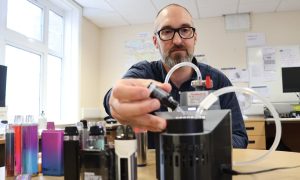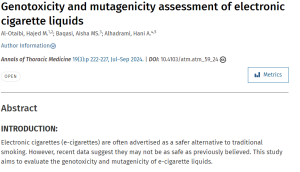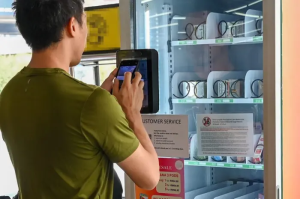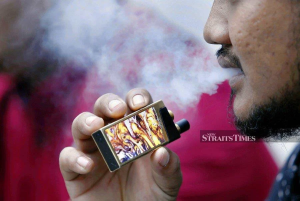Prof Dzulkifli Abdul Razak writes that pending passage of the tobacco bill, thousands of Malaysian children aged 6-12 years risk becoming vape-aholics, through no fault of their own, due to the delisting of liquid nicotine.
Tedros Adhanom Ghebreyesus, who, at the global body’s weekly media conference, said that electronic cigarettes (vapes) are a trap to recruit children, not part of harm reduction.
“When the tobacco industry introduced electronic cigarettes and vaping, one narrative they really tried to sell is that this is part of harm reduction. It’s not true. It actually is a trap, meaning kids are being recruited at the early age of 10,11,12 to do vaping and e-cigarettes,” said Tedros in one of the sharpest rebukes of the industry yet.
Children are attracted to e-cigarettes and vaping because they think that it is cool, and it comes in different colours and flavours.
“Then they get hooked for life and most actually move into regular cigarette smoking,” said Tedros, who also stressed that e-cigarette and vaping were also harmful to health in themselves.
He appealed to WHO member states, Malaysia in particular, to regulate e-cigarettes and vaping to protect their citizens.
Based on this narrative, it does imply that Malaysia, facilitated by decision breakdown, has fallen into the trap, when nicotine was hurriedly delisted from the Poisons List! It has, as alleged by WHO, been attracting children of all ages without any more safeguards.
This is in stark contrast to the US Food and Drug Administration’s action in issuing warning letters to 30 retailers for illegally selling unauthorised tobacco products.
“The unauthorised products were various types of Puff and Hyde brand disposable e-cigarettes, which were two of the most commonly reported brands used by youth e-cigarette users in 2022,” according to the FDA.
The FDA further emphasises that “protecting our nation’s youth from tobacco products – including disposable e-cigarettes – is a top priority for the FDA”.
Is Malaysia in the position to say the same as the major custodian and guardian of public health; committed to holding all actors in the supply chain – not just manufacturers but also retailers and distributors – accountable to the law as it stands?
If one has failed to deliver as an elected representative, an apology is in order, which is more deserving than the lift breakdown at Melaka Hospital.
It has been more than two months since the deadly decision, and likely longer before the new Bill is approved, if at all. Meanwhile, more children and adolescents are risking their life, regardless!
As noted by CodeBlue earlier, the tobacco bill – whose passage through the House is far from certain – will continue to legitimise e-cigarettes and nicotine vape to be sold to children and teenagers in Malaysia below the age of 18.
At the same time, a number of business organisations are lamenting the fact that they were not consulted, with fears of another round of bulldozing forced on them.
Categorically, regulations or restrictions on advertising, promotion, and sponsorship, nicotine content, flavours, sales channels, or product packaging and labelling are being compromised as Malaysia’s current tobacco control regulations under the Food Act 1983 exclude e-cigarettes and vape.
As such, we must echo the Consumers’ Association of Penang to “urge the Health Ministry to take immediate steps to ban chemical vape liquids, which are sold openly in many shops and roadside stalls without any control”.
“The ministry should not waste any time to save the young generation from damaging their lives on poisonous nicotine liquids, which are sold to them as fruit flavours.”
Thousands of children, between age six and 12, are at risk of being vape-aholics, through no fault of their own.
The writer is the recipient of the 2023 Tobacco Control Award.
Source: Code Blue










